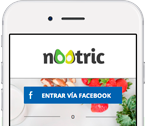Arua
Suggestions
I'm a Healthcare worker and usually only have one proper meal a day and snack throughout the day. I can't cook and can't afford to buy fresh most of the time. What do you suggest that is easy and not expensive? And what do you suggest for a routine?

Sharon Scott
0
votes
Hi Arua,
Thank you for your question.
As a general guide for overall health and wellbeing I recommend following the BANT healthy eating guidelines. You can find these at the BANT.org.uk.
As a routine I would recommend eating 3 meals a day if you can, you could also look to include 1-2 healthy snacks if required. Eating every 2.5-3hrs can help to keep blood sugar levels balanced and avoid energy dips.
Some great ideas for meals/grab and go snacks are as follows:
Breakfast - scrambled eggs, oatcakes and avocado. You can opt for cheaper eggs and can buy packs of frozen avocados and take 1/2 out the night before - this is more cost effective.
Oats are very cost effective and can be eaten as porridge or made into oaty bars for on the go with some chopped nuts.
Lunch/evening meal - salad and source of protein such as beans and chickpeas which are a cheaper alternative to fish/meat/poultry but you can also opt for frozen wild salmon/white fish cook on a tray in tinfoil and flake into salads once cooled. Tinned salmon can also be a cheaper option and easy to prepare. Tinned sardines are great providing protein and omega 3 fats at a good price.
Buying a whole chicken on occasion can provide a number of meals and you can keep the bones to make a bone broth as a base for soups.
Soups are a great option and can be made ahead of time and taken in a flask. Include a source of protein to keep you full up for longer, lentils and pulses can be incorporated into a mix of vegetables. Opting for frozen vegetables will keep the cost down. If you have a slow cooker you can add the ingredients for soup and then blend once cooked - very easy to do and delicious.
You could look into visiting your local supermarket after dinner as many of the foods are reduced in price and can be taken home and frozen for future use or you may be able to pick up some fresh veg to be used in soups.
Snacks
Nuts/seeds - a small handful is enough. Buying in bulk can be a good option to keep costs down.
Oatcakes and peanut butter
Frozen berries are very cost effective and can be mixed with some plain yogurt (opt for the shops own brand)
Good Luck
Thank you for your question.
As a general guide for overall health and wellbeing I recommend following the BANT healthy eating guidelines. You can find these at the BANT.org.uk.
As a routine I would recommend eating 3 meals a day if you can, you could also look to include 1-2 healthy snacks if required. Eating every 2.5-3hrs can help to keep blood sugar levels balanced and avoid energy dips.
Some great ideas for meals/grab and go snacks are as follows:
Breakfast - scrambled eggs, oatcakes and avocado. You can opt for cheaper eggs and can buy packs of frozen avocados and take 1/2 out the night before - this is more cost effective.
Oats are very cost effective and can be eaten as porridge or made into oaty bars for on the go with some chopped nuts.
Lunch/evening meal - salad and source of protein such as beans and chickpeas which are a cheaper alternative to fish/meat/poultry but you can also opt for frozen wild salmon/white fish cook on a tray in tinfoil and flake into salads once cooled. Tinned salmon can also be a cheaper option and easy to prepare. Tinned sardines are great providing protein and omega 3 fats at a good price.
Buying a whole chicken on occasion can provide a number of meals and you can keep the bones to make a bone broth as a base for soups.
Soups are a great option and can be made ahead of time and taken in a flask. Include a source of protein to keep you full up for longer, lentils and pulses can be incorporated into a mix of vegetables. Opting for frozen vegetables will keep the cost down. If you have a slow cooker you can add the ingredients for soup and then blend once cooked - very easy to do and delicious.
You could look into visiting your local supermarket after dinner as many of the foods are reduced in price and can be taken home and frozen for future use or you may be able to pick up some fresh veg to be used in soups.
Snacks
Nuts/seeds - a small handful is enough. Buying in bulk can be a good option to keep costs down.
Oatcakes and peanut butter
Frozen berries are very cost effective and can be mixed with some plain yogurt (opt for the shops own brand)
Good Luck

Elizabeth Cooper
0
votes
Hi Arua, thanks for your question. Following on from Sharon's suggestion about soup you could look at getting a soup maker. You can get them for about £25-£30 and all you do is throw everything in and the soup maker cooks and blends the soup for you, so you don't have to do any cooking at all. You can also throw in leftovers and make them into a soup so it's really cost effective.
Another good thing to do is batch cook so spend a morning or afternoon cooking a big batch of stew or chilli which you can add beans and lots of vegetables to to make it go further and get lots of nutrients at the same time, and make a few portions so that you can freeze some and just take a portion out when you need it. These kinds of foods are really easy to make as you can just throw in the ingredients and cook it on the hob or in the oven.
I would try to stick to 3 meals a day if you can and have protein with every meal. An omelette or porridge as Sharon suggested, as oats are cheap, go a long way and are easy to prepare. You can also buy some mixed nuts and seeds and sprinkle these on top so you are getting a good source of protein.
Lunch can be soups or salads with tinned mackerel or sardines as Sharon said. These are inexpensive and easy to make. Also, having salad with falafels and hummus that you can buy ready made in the supermarket would be a good, easy option. Or you could buy and cook a whole chicken and use it for several lunches to have with salad.
Evening meals can be stews, chilli, bolognese using cheaper and leaner turkey mince rather than beef mince and bulking it out with beans and lentils works really well.
Sharon's suggestion about visiting the supermarket to get the reduced foods is also a great idea.
I hope this helps.
Another good thing to do is batch cook so spend a morning or afternoon cooking a big batch of stew or chilli which you can add beans and lots of vegetables to to make it go further and get lots of nutrients at the same time, and make a few portions so that you can freeze some and just take a portion out when you need it. These kinds of foods are really easy to make as you can just throw in the ingredients and cook it on the hob or in the oven.
I would try to stick to 3 meals a day if you can and have protein with every meal. An omelette or porridge as Sharon suggested, as oats are cheap, go a long way and are easy to prepare. You can also buy some mixed nuts and seeds and sprinkle these on top so you are getting a good source of protein.
Lunch can be soups or salads with tinned mackerel or sardines as Sharon said. These are inexpensive and easy to make. Also, having salad with falafels and hummus that you can buy ready made in the supermarket would be a good, easy option. Or you could buy and cook a whole chicken and use it for several lunches to have with salad.
Evening meals can be stews, chilli, bolognese using cheaper and leaner turkey mince rather than beef mince and bulking it out with beans and lentils works really well.
Sharon's suggestion about visiting the supermarket to get the reduced foods is also a great idea.
I hope this helps.

Andrea Prochazkova
0
votes
Hi Arua
Thanks for your question. Sharon and Elizabeth have covered most of the points already however I would like to add additional quick tips.
You could buy oatcakes or rye cakes that can be easily carried in your purse and are very cheap. You can have these with cooked eggs, avocado, salad, humus, guacamole, cooked chicken, canned sardines/mackerels or organic liver pate. These foods are high in fibre and protein which can provide you much needed sustained energy in your profession.
You could buy 100% whole grain bread or tortillas and make a nice sandwich or tortilla wrap that can be eaten anytime anywhere. You can add some beans to the wrap, shredded chicken, and of course some salad vegetables.
I understand that your profession could be taxing physically and emotionally. Therefore, I do not want to underestimate the importance of the increased intake of nutrient-rich foods that could help you deal with the stress you are facing.
To insure you keep healthy, aim to allocate some time for food preparation and planning – cooking at home is the key to health. You can allocate one day for cooking and make 2-3 dishes in large portions so you can freeze the rest and have it ready when needed. You could also invest into a vegetable cutter that could speed the preparation up. Make it more enjoyable too – pour yourself a glass of wine when cooking, dance to your favourite music or listen to a nice audio book. Try to relax and cook at the same time to make food preparation more enjoyable.
You could also cook quick dishes like stir-fries that are done within 30 minutes and cook your veggies in the oven. You can chop them to larger chunks (which takes less time), put some nice spices, olive oil, and leave the oven to do the cooking. Then you can mix the veggies with your stir-fries, stews etc.
In terms of canned food – it would be the best if you could limit the consumption of canned food to 1 can a week maximum. The lining of the cans contains the chemical BPA that is a hormone disruptor and has been associated with several negative health outcomes.
Good luck!
Thanks for your question. Sharon and Elizabeth have covered most of the points already however I would like to add additional quick tips.
You could buy oatcakes or rye cakes that can be easily carried in your purse and are very cheap. You can have these with cooked eggs, avocado, salad, humus, guacamole, cooked chicken, canned sardines/mackerels or organic liver pate. These foods are high in fibre and protein which can provide you much needed sustained energy in your profession.
You could buy 100% whole grain bread or tortillas and make a nice sandwich or tortilla wrap that can be eaten anytime anywhere. You can add some beans to the wrap, shredded chicken, and of course some salad vegetables.
I understand that your profession could be taxing physically and emotionally. Therefore, I do not want to underestimate the importance of the increased intake of nutrient-rich foods that could help you deal with the stress you are facing.
To insure you keep healthy, aim to allocate some time for food preparation and planning – cooking at home is the key to health. You can allocate one day for cooking and make 2-3 dishes in large portions so you can freeze the rest and have it ready when needed. You could also invest into a vegetable cutter that could speed the preparation up. Make it more enjoyable too – pour yourself a glass of wine when cooking, dance to your favourite music or listen to a nice audio book. Try to relax and cook at the same time to make food preparation more enjoyable.
You could also cook quick dishes like stir-fries that are done within 30 minutes and cook your veggies in the oven. You can chop them to larger chunks (which takes less time), put some nice spices, olive oil, and leave the oven to do the cooking. Then you can mix the veggies with your stir-fries, stews etc.
In terms of canned food – it would be the best if you could limit the consumption of canned food to 1 can a week maximum. The lining of the cans contains the chemical BPA that is a hormone disruptor and has been associated with several negative health outcomes.
Good luck!
Tony Diaz
0
votes
Hi Arua,
I am sure you find useful all my colleague's advices. As Andrea said, if you make out of cooking an enjoyable activity, that would be great. However, if you decide to take her advice of having a glass of wine while cooking, remember that the only safe amount of alcohol intake in terms of health maintenance is 0. Although occasional consume in small amounts (e.g. social events) is harmless for adults without any medical condition to be considered.
I am sure you find useful all my colleague's advices. As Andrea said, if you make out of cooking an enjoyable activity, that would be great. However, if you decide to take her advice of having a glass of wine while cooking, remember that the only safe amount of alcohol intake in terms of health maintenance is 0. Although occasional consume in small amounts (e.g. social events) is harmless for adults without any medical condition to be considered.

Maria Mitchell
0
votes
Hello Arua,
Thank you for your question, as my colleagues have mentioned the key to eating well when you are juggling a busy job with limited time is planning and preparation. I would keep a food diary for 3-5 days of what you are currently eating and snacking on, this will then provide a good overview of your diet and can be a starting point to build a food plan from.
I appreciate that time constraints mean that you can only manage one meal per day but snacks can often be as nutritious as meals. Oatcakes and nut butters or avocados are extreamly nutritient dense and will give you sustained energy, as are nuts and seeds. Good quality protein shakes can be mixed with fruit and you can add in extras such as coconut oil for a super boost. Try to ensure any snack you have has protein in as this will help keep your blood sugar stable and energy levels from dropping so think boiled eggs with crudités, Greek yogurt with berries and so on.
Finally many people think that to eat healthy has to be expensive but this really isn't the case, planning your meals and snacks for the week can really save money in the long run as will batch cooking foods and freezing them in portions. My colleagues mentioned soups and stews which can be made cheaply and you can bulk them up with lentils and pulses to add additional protein. I am a fan of the website budgetbytes.com here you will find lots of nutritious recipies for those on a budget, the spinach and egg skillet is a must!
Good luck.
Maria
Thank you for your question, as my colleagues have mentioned the key to eating well when you are juggling a busy job with limited time is planning and preparation. I would keep a food diary for 3-5 days of what you are currently eating and snacking on, this will then provide a good overview of your diet and can be a starting point to build a food plan from.
I appreciate that time constraints mean that you can only manage one meal per day but snacks can often be as nutritious as meals. Oatcakes and nut butters or avocados are extreamly nutritient dense and will give you sustained energy, as are nuts and seeds. Good quality protein shakes can be mixed with fruit and you can add in extras such as coconut oil for a super boost. Try to ensure any snack you have has protein in as this will help keep your blood sugar stable and energy levels from dropping so think boiled eggs with crudités, Greek yogurt with berries and so on.
Finally many people think that to eat healthy has to be expensive but this really isn't the case, planning your meals and snacks for the week can really save money in the long run as will batch cooking foods and freezing them in portions. My colleagues mentioned soups and stews which can be made cheaply and you can bulk them up with lentils and pulses to add additional protein. I am a fan of the website budgetbytes.com here you will find lots of nutritious recipies for those on a budget, the spinach and egg skillet is a must!
Good luck.
Maria

Joanne Jackson
0
votes
Hi Arua,
I'll try to build on the helpful suggestions offered by my colleagues. To summarise so far the recommendations have incuded:
1) Eating at regular intervals (2-3 hours)
2) Eating 3 meals and 2 healthy snacks per day if possible
3) Eating foods containing slow releasing enrgy (wholegrains, root veg, squashes etc.), healthy fats (oily fish, nuts, seeds, avocado etc.) and protein (lean meat, fish, eggs, dairy, nuts, seeds etc.)
4) Bulking out dishes with plant-based protein i.e. beans and lentils.
5) Planning and preparing food in bulk, batch cooking, freezing.
6) Slow cooking soups and casseroles
7) Preparing portable nutritious snacks i.e. oak cakes with nut butter, fruit and a handful of mixed nuts etc.
8) Sourcing good value produce - i.e. frozen berries, canned/frozen fish, discounted supermarket goods etc.
In addition I would suggest to save time and money, make the most of any 'left-overs'. By cooking extra in the evening it is quick and easy to add cold-cuts of poultry or poached fish to a mixed salad/rice salad/quinoa salad for a nutrient-dense lunch. Also try to eat seasonal fruit and veg as it tends to be locally grown and cheaper making it better value. This will also increase the diversity of the food that you eat which may benefit your gut and overall health.
I'll try to build on the helpful suggestions offered by my colleagues. To summarise so far the recommendations have incuded:
1) Eating at regular intervals (2-3 hours)
2) Eating 3 meals and 2 healthy snacks per day if possible
3) Eating foods containing slow releasing enrgy (wholegrains, root veg, squashes etc.), healthy fats (oily fish, nuts, seeds, avocado etc.) and protein (lean meat, fish, eggs, dairy, nuts, seeds etc.)
4) Bulking out dishes with plant-based protein i.e. beans and lentils.
5) Planning and preparing food in bulk, batch cooking, freezing.
6) Slow cooking soups and casseroles
7) Preparing portable nutritious snacks i.e. oak cakes with nut butter, fruit and a handful of mixed nuts etc.
8) Sourcing good value produce - i.e. frozen berries, canned/frozen fish, discounted supermarket goods etc.
In addition I would suggest to save time and money, make the most of any 'left-overs'. By cooking extra in the evening it is quick and easy to add cold-cuts of poultry or poached fish to a mixed salad/rice salad/quinoa salad for a nutrient-dense lunch. Also try to eat seasonal fruit and veg as it tends to be locally grown and cheaper making it better value. This will also increase the diversity of the food that you eat which may benefit your gut and overall health.




